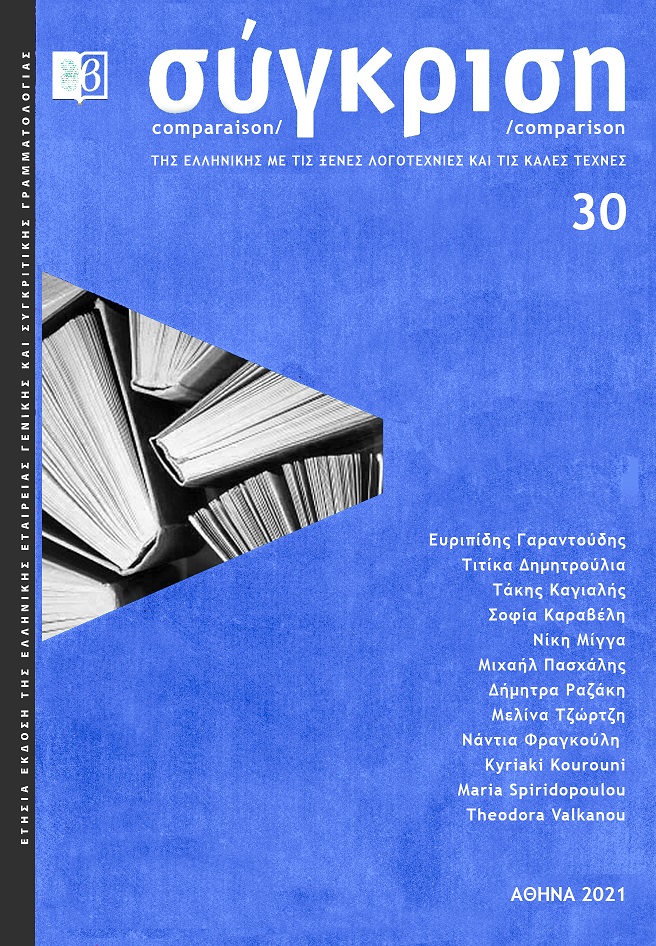Ο μύθος της «μυθικής μεθόδου»: Μια φιλολογική ανασκαφή

Περίληψη
The myth of the "mythical method": A philological excavation
This paper seeks to illuminate the meaning and purpose of T. S. Eliot’s “mythical method”, both in its original context (Eliot’s 1923 review of Joyce’s Ulysses) and in Greek critical practice, from the mid-20th century to the present. Beginning with a review of the “mythical method’s” strong impact and widespread use as a critical term in contemporary Greece, it proceeds to present this term’s main interpretations, following its initial formulation by George Seferis: as a general organizing principle or tone of voice (by E. Keeley), as a “myth-historical objective correlative” (by N. Vayenas) and as an allegorical device (by various recent critics), and to discuss their respective shortcomings. Turning to Eliot’s text, the paper shows that the “mythical method” was never meant to be used as a critical term, while Eliot’s definition of it fails to correspond to his prime textual examples. The term’s original formulation was mainly intended to protect The Waste Land, in the context of local literary politics, and so it was effectively repudiated by its author shortly after its introduction. Although the term has been practically abandoned in international critical practice, its proliferation in Greek criticism is remarkable. The paper concludes that, despite the confusion caused by their conceptual failures and wild improvisations, Greek designations of the “mythical method” can be enlightening, as illustrations of the contradictory canonizing strategies operating in the field of Greek criticism during the second half of the 20th century.
Λεπτομέρειες άρθρου
- Πώς να δημιουργήσετε Αναφορές
-
Καγιαλής Τ. (2021). Ο μύθος της «μυθικής μεθόδου»: Μια φιλολογική ανασκαφή. Σύγκριση/Comparaison/Comparison, 30, 1–23. https://doi.org/10.12681/comparison.27175
- Τεύχος
- Τόμ. 30 (2021)
- Ενότητα
- Άρθρα

Αυτή η εργασία είναι αδειοδοτημένη υπό το CC Αναφορά Δημιουργού – Μη Εμπορική Χρήση – Παρόμοια Διανομή 4.0.
Οι συγγραφείς των άρθρων που δημοσιεύονται στο περιοδικό Σύγκριση διατηρούν τα δικαιώματα πνευματικής ιδιοκτησίας επί των άρθρων τους, δίνοντας στο περιοδικό το δικαίωμα της πρώτης δημοσίευσης. Άρθρα που δημοσιεύονται στο περιοδικό Σύγκριση διατίθενται με άδεια Creative Commons 4.0 και σύμφωνα με την άδεια μπορούν να χρησιμοποιούνται ελεύθερα, με αναφορά στο/στη συγγραφέα και στην πρώτη δημοσίευση για μη κερδοσκοπικούς σκοπούς και με δικαίωμα τροποποίησης μόνον με παρόμοια διανομή (αν αναμείξετε, τροποποιήσετε, ή δημιουργήσετε πάνω στο υλικό, πρέπει να διανείμετε τις δικές σας συνεισφορές υπό την ίδια άδεια όπως και το πρωτότυπο).


